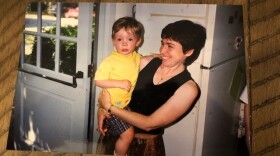
Tara Boyle
Tara Boyle is the supervising producer of NPR's Hidden Brain. In this role, Boyle oversees the production of both the Hidden Brain radio show and podcast, providing editorial guidance and support to host Shankar Vedantam and the shows' producers. Boyle also coordinates Shankar's Hidden Brain segments on Morning Edition and other NPR shows, and oversees collaborations with partners both internal and external to NPR. Previously, Boyle spent a decade at WAMU, the NPR station in Washington, D.C. She has reported for The Boston Globe, and began her career in public radio at WBUR in Boston.
-
Physician Abraham Verghese reflects on a defining moment in 1985, when one of his terminally ill patients reminded him to follow his dreams.
-
Nicole George-O'Brien was driving over a bridge when she experienced a seizure. She woke up in the hospital, worried that she'd hurt someone, but found out a stranger helped her and others that day.
-
When Vanessa Foster was stranded in the middle of Alaska, a stranger with bright blue eyes stopped to give her a ride, and changed her life.
-
Stephanie Cole never forgot one tiny moment during her first day at a new job, when a stranger showed her kindness.
-
When Kate Baker's toddler experienced a seizure during a transatlantic flight, she nearly shut down. But she received comfort from an unexpected group of passengers.
-
Karl Goldstein nearly gave up playing the piano, but a few words from a tough music teacher put him on a lifelong path in music.
-
If you listen closely to giggles, guffaws, and polite chuckles, you can discern a huge amount of information about people and their relationships with each other. This week, we talk with neuroscientist Sophie Scott about the many shades of laughter, from cackles of delight among close friends to the "canned" mirth of TV laugh tracks.
-
Judy, Lyn and Donna Ulrich were driving to a volleyball game when their Ford Pinto was hit from behind by a Chevy van. The Pinto caught fire, and the three teenagers were burned to death. This week on Hidden Brain, we talk to a former Ford insider who could have voted to recall the Pinto years before the Ulrich girls were killed — but didn't. And we ask, is it possible to fairly evaluate our past actions when we know how things turned out?
-
Some challenges feel insurmountable. But psychologist Emily Balcetis says the solutions are often right in front of our eyes. This week, as part of our annual series on personal growth and reinvention, Emily explains how we can harness our sight to affect our behavior.
-
There is great comfort in the familiar. It's one reason humans often flock to other people who share the same interests, laugh at the same jokes, hold the same political views. But familiar ground may not be the best place to cultivate creativity. Researchers have found that people with deep connections to those from other countries and cultures often see benefits in terms of their creative output. This week, we revisit a favorite 2018 episode about the powerful connection between the ideas we dream up and the people who surround us, and what it really takes to think outside the box.










